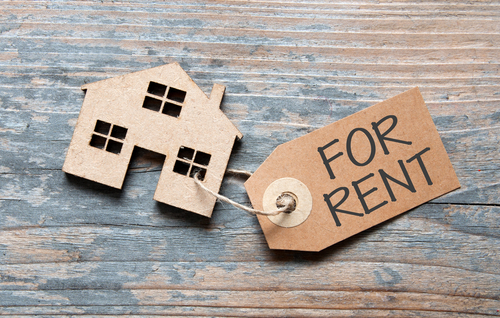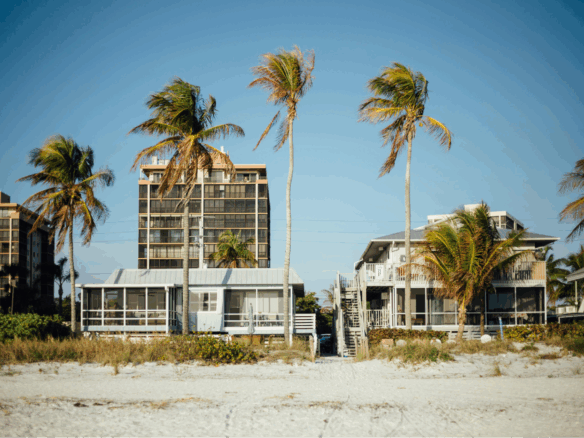
A comprehensive list of considerations before putting your property up for short-term rental, including your financial goals, vacation rental insurance, being available for guests and more.
If you own a home that you’re thinking of converting to a rental, have you considered going short-term rather than looking for a commitment from a long-term tenant? According to the Vacation Rental Management Association, the market for vacation rental properties is growing, with 23,000 property owners/companies in the U.S. in 2018 alone, and the industry is expected to be worth nearly $170 billion by the end of 2019. Sounds like a great time to get in on the action, doesn’t it? But that doesn’t mean you should jump in with both feet.
Check with the city first
Before you get too far along in the process, it’s best to make sure the city where your rental property is situated allows for short-term rentals. Many cities have ordinances against them, with an increasing number of cities considering bans. If you belong to a homeowner’s association, check those bylaws to ensure it’s permitted by the HOA.
If you have the green light, great!
What are your financial expectations for short-term rental?
Once you’ve decided to go the short-term route, and you’ve made sure the city (and your HOA if applicable) allows for it, it’s time to think about the financial aspect. First of all, what is your expected return on investment for the rental property? Obviously, you’re not getting into the short-term rental business to lose money! The revenue you receive from renting the property should cover your remaining mortgage and utilities, as well as any other expenses you incur from buying supplies for the guests such as toilet paper, paper towels, etc. Also determine how much of a profit you’d like to make so you’re not just breaking even each month. With that number in mind, work backwards and determine a reasonable weekly rate that you’d feel comfortable renting your property. Need help? Look at similar properties in your area to see how much they rent for. You don’t want to price your property too high and scare away potential guests. Price your rent too low, and you’re cutting into your profits.
Second, factor in fees from listing your home on sites such as Airbnb, Homeaway and VRBO. Some sites, like Airbnb, will charge a commission on each listing (3% in the case of Airbnb). Homeaway charges an annual fee but also has a per-listing option of 10%. If you will have your home listed there continuously, it makes more sense to pay the annual fee.
You’ll need to purchase insurance on the rental property, and a comprehensive commercial package policy is the best way to go. Coverage can vary, but choose a policy that covers your home, your liability as a business owner, and damage caused by renters at a minimum. Don’t assume that your homeowner’s policy will also cover your rental property. Most homeowner’s policies carry a “business exclusion” clause which will render them exempt from any claims arising from your vacation rental. Comprehensive vacation rental plans that combine your homeowner’s insurance with short-term rental insurance can save you money and simplify having to pay multiple providers.
Finally, because your rental property will be considered a commercial property, you will be taxed accordingly. You will need to report your rental property income, but you can write off expenses relating to the rental.
Take location into consideration
Is your property in a high-demand area for tourists and travelers? If not, are you near any large corporations that might host out-of-town employees for extended periods of time? If you’re not, then it might not be realistic to think you will have the home rented out each week. What other local amenities are nearby? Are you close to national parks? Sports arenas? Concert venues? What other attractions could help draw customers to your home? Think of these local amenities as ways to help market your short-term rental when you list it on sites such as Airbnb or Homeaway.
What is your availability to respond to inquiries and guest needs?
Is your permanent residence nearby, or are you going to be living out of state? If you’re not within a quick drive of the vacation rental property, consider hiring a property manager who can handle any issues, restock supplies between guest rentals, and coordinate maintenance and repairs when needed.
If you do live nearby, consider the impact of having guests constantly in and out of your property. You will need to be involved to some extent and may even receive calls from your guests while they are on-site. If you’ve been renting your property, you may be used to this, but each week brings different people, different personalities, different needs. Some weeks may be easier than others!
You’ll also need to monitor your bookings on Airbnb or whichever site the home is listed on. This will require daily checking, responding to inquiries, and confirming bookings. This can be time-consuming, especially if you have a full-time job or other obligations.
Is your rental property fully furnished?
Short-term renters expect their vacation rental to be fully furnished, including not only the large pieces of furniture such as sofas and beds, but cookware in the kitchen, a television, maybe even wi-fi. And, if your home hasn’t been updated since 1982, it’s time to think about updates. Your home will be rented out largely on how it appears in photos. If your home doesn’t stand up to the other rental properties in your market, renters will look elsewhere. This will be an upfront investment for you to consider as you are planning your finances.
It’s not for everyone
Ultimately, a lot of work, time and effort goes into maintaining a short-term rental property. It may work for some, and not for others. Do your research to determine if turning your property into vacation rental is right for you.
Tags: short-term rental, vacation rental, property owner



